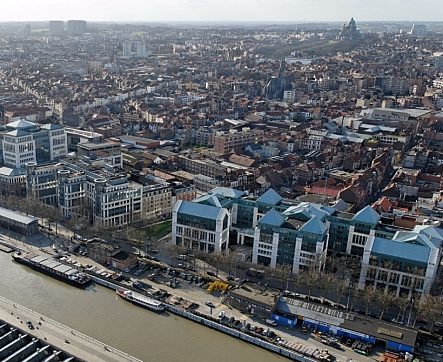Inland ports tend to be smaller in scale, when compared to seaports; this calls for a more detailed analysis of the activities that take place in such ports.
Τhe strategic role of inland ports in urban freight policy is the theme of the latest port study by PortEconomics members Elvira Haezendonck and Michael Dooms along with their colleagues Geoffrey Aerts and Mychal Langenus.
Analyzing the logistical dedicatedness and the geographic reach of economic activities that take place within a specific inland port, the Port of Brussels, the scholars identify that the port under consideration faces challenges of retaining relatively new traffic categories (e.g. pallets) characterized by a high potential for transport mode substitution, whilst the more traditional traffic categories (e.g. construction materials) show higher levels of logistical dedicatedness to the port. The latter do so while generating negative local externalities. As a result, this assessment serves the creation of crucial strategic insights that allow policy makers to improve their urban freight policy and the role of inland ports therein. Furthermore, these insights allow for the identification of key stakeholders with whom strategic objectives can or cannot be easily aligned in the context of urban logistics.
The study has been published in the book Geographies of Maritime Transport (Cheltenham: Edward Elgar), edited by Gordon Wilmsmeier & Jason Monios (2020) – and you might freely download the authors’ version via PortEconomics












